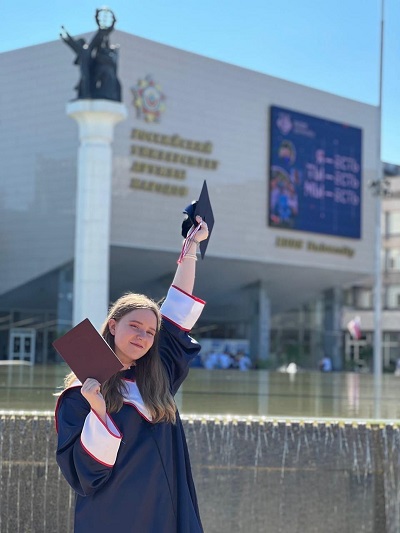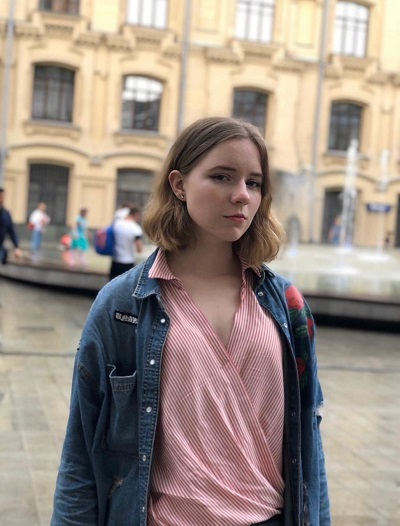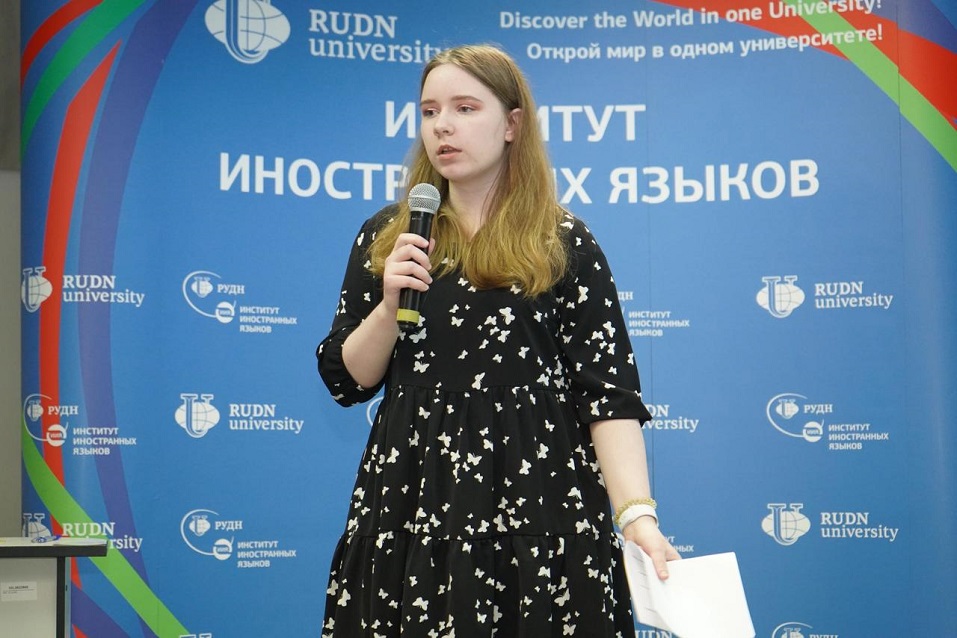Maultashen, the Arctic and international relations... 10-semester straight A-student of RUDN University Tatyana Parfenyuk talks about European studies, A-grades and exotic dishes

Who did you want to be as a child?
For as long as I can remember, I have always wanted to be a veterinarian because I loved animals. But growing up I realized that to become a good veterinarian, love alone is not enough. I needed to study medicine, which scared me.
When did you realize that you were interested in foreign regional studies?
When I was in the10th grade, I seriously thought about choosing a university. My dream major had to be related to foreign languages. At the same time, I got interested in what was happening in the world. I started reading the news, history books and biographies of famous political figures. I came up with a formula: foreign language + politics = international relations. That was exactly what I needed! Of all the places, Europe was closer to my heart, so the choice was “Foreign Regional Studies”.
What do regional scientists do?
It’s the same as international affairs, but the focus is mainly on a specific region and countries. We study the theory of international relations, political science, and diplomatic etiquette. But Europe is the focal point for us in terms of history, culture and political processes.

Your favorite country to study is...
Germany. I fell in love with it in childhood. My parents went there on business trips several times, sent photographs and talked a lot about and the life in the country. Their stories sparked curiosity in my heart. History, culture, architecture, holidays, and especially German cuisine — it’s all something special!
What dishes would you like to try?
German cuisine differs depending on the region. But the most common food is sausages. By the way, there are several dozen kinds of them. I once tried white sausages. Their color is already something unusual. But there are also other types, and I want to try them all.
Maultaschen and Rauladen are also on the list. Maultaschen are German dumplings with a lot of filling from meat and ham. Vegetarians have their own version of Maultaschen with spinach. Rauladen is beef roll with bacon, onions and pickles. It’s not hard to see that I’m a meat lover, and German cuisine is just right for me.
You have interned in several companies. Which one is the most memorable?
At LUKOIL-Western Siberia I was mainly involved in special programs and document management. I learned a lot about team work and the world of oil and gas.
The second internship was at the Russian International Affairs Council. I focused on my major, compiling digests, practicing English and German as well as studied European countries, the USA and Canada. This is when I started thinking about my future master’s thesis.
Is it something unusual?
The Arctic has always been something distant for me and for a long time it did not arouse much interest. But during the internship I learned a lot about this region. How attractive it is to other states due to its resources and geographic location, and how endangered it is due to climate change.
Now I am writing about the activities of EU states in the Arctic. This is quite interesting, because most of the states are territorially far from the region and have fewer opportunities than the Arctic countries. At the same time, many European countries have their own interests there and are actively involved in the Arctic political, economic and scientific life.
You have gone 10 semesters with straight A’s. What’s kept you going all these years?
The main secret is to study what you like. Sometimes, of course, it is difficult. Burnouts also happen. But when that happens the desire to learn something new takes over. Close people also help, supporting and motivating in difficult moments.
What do you do in your free time?
I like to embroider or do diamond mosaics while watching TV series. This is a good stress relief.
What is your dream?
Now I want to successfully complete my master’s degree and continue my studies as a postgraduate student.
If you win a car, where will you go first?
First I’ll go to my grandparents to make them happy. And then I’ll go for a ride around Moscow at night with my brother Vitya.
The interview was conducted by Anastasia Zhuravleva, student of the Faculty of Philology (“Journalism”, IVth year).
Photo — from the personal archive of Tatyana Parfenyuk.
RUDN University staff and alumni received state and departmental awards at the State Kremlin Palace during a festive concert in honor of RUDN 65th anniversary.
An architectural-landscape project by a 5th-year student of RUDN has been shortlisted for the annual International Professional ADD AWARDS 2024 for architects, designers, and developers in the “Urban Environment” category.
RUDN University employees’ work and contribution to the development of the university cannot go unappreciated. The Ministry of Science and Higher Education of Russia recognizes talented university employees and present them with various departmental and state awards.
